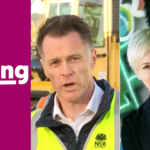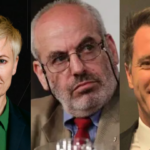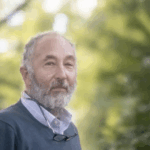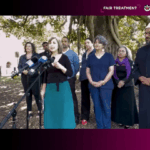NSW Government Rejects Drug Law Reform Sought by the Community
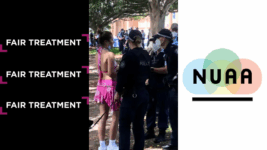
The NSW Labor Carr government set the precedent for visionary drug law reform delivered by a state government at risk of unpopular civil society response, because it was of most benefit to the people of NSW in 1999. Yet, with the delivery of its response to the 2024 NSW Drug Summit last week, the NSW Labor Minns government ran away from the agenda presented with its tail between its legs.
The Minns government released its delayed response to the April released 2024 NSW Drug Summit report, which made 56 recommendations. And in doing so, it conducted itself in a similar way to the NSW Liberals, as Labor simply ticked off the politically easiest changes to make that related strategies and funding, which a starved alcohol and other drug (AOD) sector will be happy to have tossed to it.
Thirty six recommendations were agreed to. But reforms regarding more safe injecting rooms, a driving defence for prescribed medical cannabis users and the removal of drug dogs and strip searches from music festivals were not supported, while the primary drug law reform sought by the community, drug decriminalisation, was removed from the agenda during the 2024 summit.
Ardent reformist, former NSW Magistrate David Heilpern confirmed last week what many had feared is the case: that with the rebuttal of this key opportunity to achieve change, which was the result of a decade-long civil society campaign that includes key legal and medical representative associations, the once-every-few-decades opportunity to forge changes has been squandered.
The fact that NSW Labor was attempting to drop its election promise to facilitate drug law reform was suspected long before the holding of the drug summit in November and December last year, as NSW premier Chris Minns had repeated applied delaying tactics in the press.
But the key issue here is community members, many of them young, will continue to die in preventable drug-related circumstances because top government ministers have their heads stuck deeply and wilfully in the sand.
Cold feet politicking
“We saw the Bob Carr Labor government meet the moment of the original drug summit in 1999, but the lack of leadership to meet the moment of the latest drug summit by the current government is profoundly disappointing,” said Emma Maiden, Uniting NSW.ACT’s director of advocacy and external relations.
“The NSW government have let down the community today,” added the director for Uniting, which was a key organisation in last year’s campaign to prevent NSW premier Chris Minns from simply continuing to delay the election promise of holding a drug summit until some unspecified point down the track. “This response does not reflect what the community and the experts wanted.”
But as Heilpern underscored, even though the summit did take place late last year, the rejection of its most formidable and lifesaving reforms has achieved the same outcome as never having held it. And in the wake of the summit, the general assessment was the staggered way in which it was progressed – two regional and two city dates over two months – was meant to derail its effectiveness.
The Uniting Church launched Fair Treatment in 2018. This calls for the progression of NSW and ACT drug decriminalisation laws, which remove criminal sanctions against personal drug possession and use. This means people who use drugs are not criminally prosecuted for possessing drugs for their own use. Since October 2023, decrim is the policy in the ACT and no problems have resulted.
That the NSW premier was rethinking his election promise to hold the summit became apparent in August 2023, when a sensationalist Murdoch press commenced convulsing over the decrim policy reform about to come into play in the capital territory. And on Daily Telegraph prodding, Minns said he had “no mandate” to progress decriminalisation and the fabled drug summit would be delayed.
An excuse to get in your face
The assault upon the beleaguered 2024 NSW Drug Summit continued on. Two days of hearings were first held in Griffith and then Lismore in early November last year. The 4th and 5th of December 2024 dates held on Gadigal land in Sydney became the mainstay of the event and right before proceedings Minns and the NSW “health minister” told the press that decriminalisation was off the agenda.
This was a virtual knife in the back to the respected drug law reformists and harm minimisation experts inside the International Convention Centre at Darling Harbour.
These people, who were finally getting their day in a forum to openly discuss controversial measures shown to be best practice and further, to save fellow community members from drug-related criminalisation, harms and death, were denied their effective voice.
Heilpern noted that the refusal to drop sniffer dog use and strip searches from music festivals, where drug checking services are available, was based upon it being a key “investigative tool”. The reason the public has been calling for an end to the use of drug dogs and accompanying strip searches in general is at worst, they led young people to overdose in an attempt avoid police detection.
“The use of drug detection dogs and the ability for police officers to carry out strip searches where appropriate are important tools used by the NSW Police Force to target and reduce drug supply and consequent harm at music festivals,” stated the NSW government, as it refused the recommendation.
Drug dog operations, however, hardly ever catch drug dealers. Rather dogs provide an excuse for officers to generally surveil people in a public place and target those then indicated by dogs, which has repeatedly been shown to mainly result in the finding of small amounts of drugs for personal use. In fact, drugs aren’t located on at least two-thirds of occasions as a result of dog indications.
And while NSW police insist on being able to maintain the power to make teenagers strip off in front of two armed officers over what overwhelmingly turns out to be a small piece of pot, is beyond any rational reasoning.
But taken together with the dogs, strip searches do serve to intimidate general members of the public.
Punishing users not dealers
“It’s an ongoing disappointment that the NSW government took meaningful law reform off the table before the summit started,” said NUAA (NSW Users and AIDS Association) chief executive Dr Mary Harrod. “It subverted the main goal of the summit: to understand and reflect community sentiment. There is clearly ongoing, long-term advocacy work to do on law reform.”
“In terms of the government’s recent response, we are particularly disappointed that it has not supported recommendations to end the use of drug detection dogs and strip searches for suspected drug possession, even during the current trial of drug checking services at music festivals,” the harm reduction advocate continued.
The Minns government launched the Early Intervention Drug Diversion initiative in February 2024, which was a watered-down version of decriminalisation suggested by opposition leader Liberal MP Mark Speakman over 2020-22, in response to another government reform inquiry. Relying on officer discretion, the EDDI diversion initiative results in police overwhelmingly continuing to arrest people.
Sydney Criminal Lawyers spoke to Harrod back in 2022, when the state of NSW was waiting on a long overdue response to the 2020 delivered final report on the Special Commission on the Drug Ice. The Coalition again refused the key recommendation similar to those rejected in response to the 2024 Drug Summit. The Perrottet government then provided $500 million in rehabilitation funding.
So, in responding to the summit recommendations, the Minns government has agreed to 36 positive recommendations but shot down the key reforms. The government support for the production of drug strategies, policy changes and funding of drug services is vital and necessary, and it further serves to keep most of the AOD sector silent on the withholding of the most favoured changes.
But as Professor Heilpern makes certain, the knocking down of the campaign for drug law reform in NSW did not involve the stifling of a recent push that emerged after the NSW ice government inquiry response. Rather, this had been a sustained campaign that began at least a decade ago, when a spate of six drug-related deaths occurred at music festivals nationwide over 2014 and 2015.


